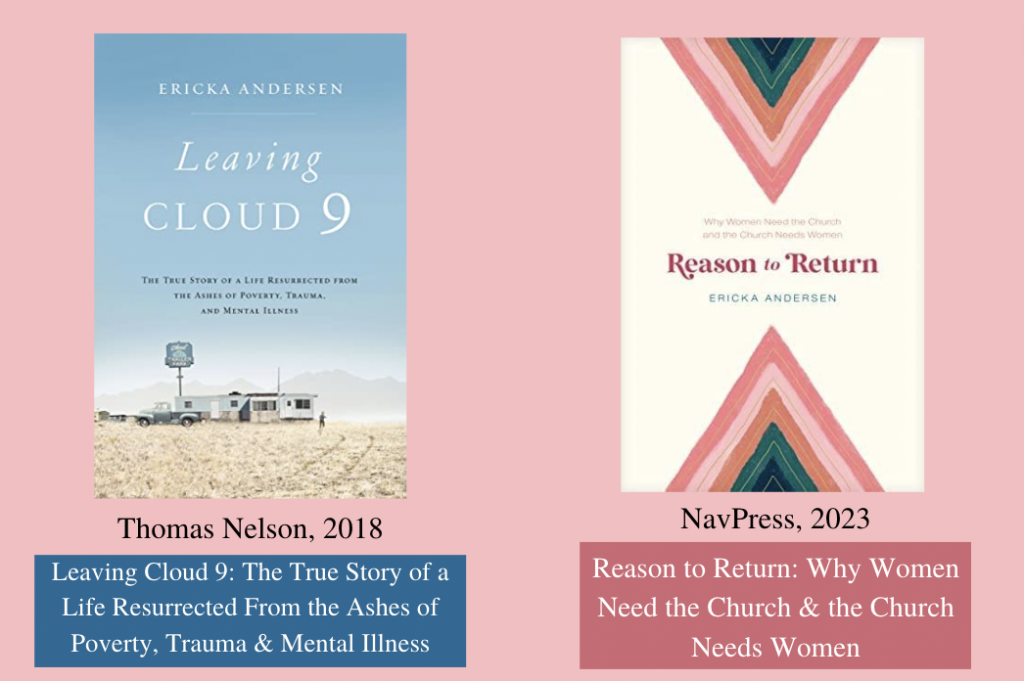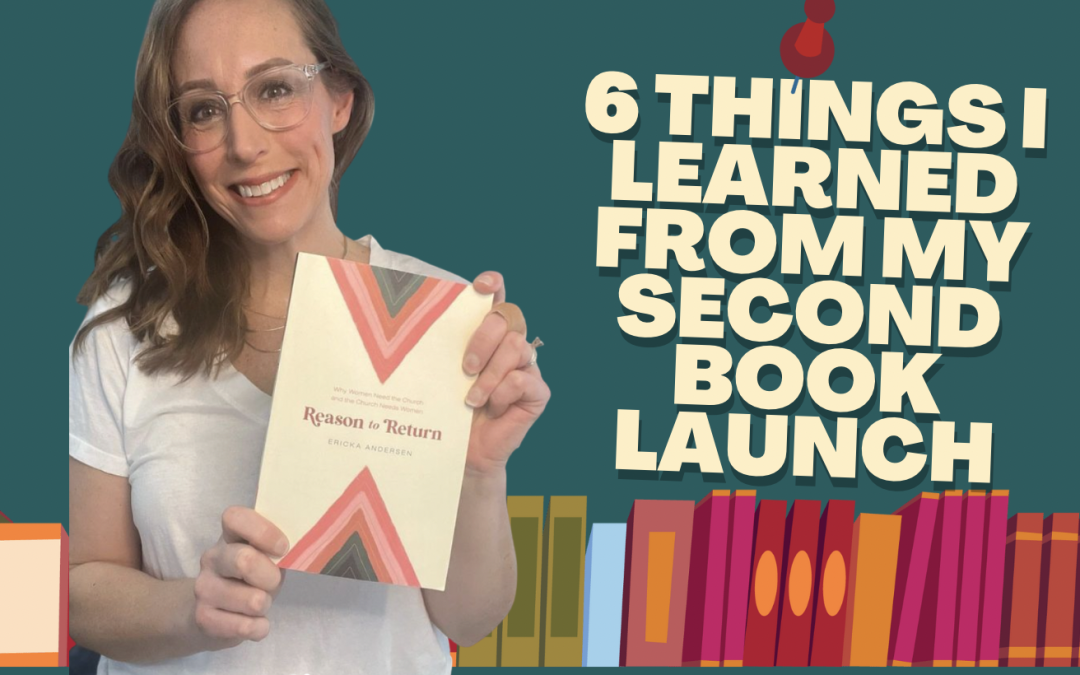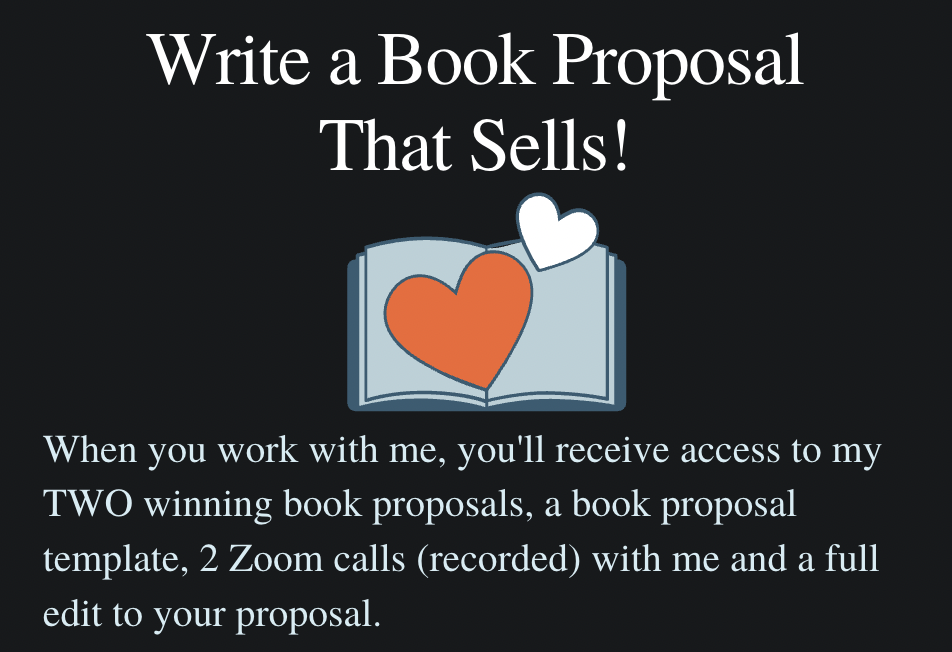A traditional book launch — where your book is published by a publisher and not self-published — has a lot of moving parts! For a freshman author, it feels overwhelming and mysterious. This was the case for me — but I don’t want others to suffer for lack of information like I did! So let me give you a little back story and then…onto the tips!
If you asked friends from childhood what I would be when I grew up, they would have said a “writer.” Few people actually get to live out their childhood aspirations so clearly, but I am lucky to be a professional in the writing world.
Publishing a book had been on my mind since grade school and four years ago, I was able to publish my first book, “Leaving Cloud 9: The True Story of a Life Resurrected From the Ashes of Poverty, Trauma and Mental Illness.” I got a book deal with Christian book publishing giant Thomas Nelson — what?! It was so exciting!
>>>> Join my VIP Writer’s Email List for tips every week!
It was an unexpected and whirlwind experience that I don’t regret — but there were many things I was unprepared for in the publishing world.

When I dared to seek out the publishing of a second book, I had a renewed mindset. I understand so much more about the marketing process, the target audience, answering felt needs, transformation and speaking in a way that encourages people to actually buy the book. Before I get ahead of myself, let’s talk about the top things I learned this time around.
My second book, “Reason to Return: Why Women Need the Church & the Church Needs Women” was published by NavPress and I had a much better experience I think, in part, because of my new mindset — and because it was a smaller team with more concentration on their titles.
So what did I learn from my second traditional book launch? I’m about to tell you, so get ready to take notes!

1. Build That Email List
I started with around 800 people on my email list three years ago. I knew that in order get another book deal, that had to change. My former agent told me he wasn’t sure he could represent me again unless I had a significantly larger list. I started working on lead magnets like crazy and ultimately invested probably $1,500 in Facebook ads to get those numbers up there. By the time, my proposal was done & being shopped around, I had over 4,000. That’s still small but it’s MUCH better.
Studies show that email conversion rate for book sales can be as high as about 15%. That’s not going to land me on the bestseller list, but it’s going to get my somewhere.
Not only was I building my email list, but I was nurturing it. I got very consistent with sending out a weekly email with similar elements and jam-packed with helpful advice, tips or information my target audience would enjoy. How can you keep them from unsubscribing? By the time my book came out, I had a strong “know, like & trust” factor going on!
2. Think WAY Long-Term
What I’ve learned is this: A non-fiction book is not just a one and done type of thing. If you really want to sell a book, you’ll need to do it long-term. When I landed on the topic for my last book, I immediately transformed my mindset around the topic. This is something I care deeply about and it will be a lifelong passion of mine. Therefore, the book became just one more element of a larger story I was writing around this topic. I began making connections and recording podcasts from people within this community. I thought about how I could make long-term relationships, brainstorm freelance articles and incorporate the messaging of the book into my personal BRAND. This means, I’ll ultimately be selling the book for a lifetime.
The book “Perennial Seller” by Ryan Holiday was transformative for me on this. It also erased the pressure to be some kind of best seller on launch week. This is a marathon, not a sprint. I will do my best on pre-orders and launch but the work of selling this book has just begun and this eases a lot of stress! This is not a perspective I had with book #1, when I felt like I had completely failed after it flopped launch week and the publishing company went MIA. I could have done SUCH a better job with just a little more knowledge and perspective.
3. Relationships Are So Important
This is rather obvious, but I really invested in it this time around. More than a year, maybe even two out, from publishing my book, I began making connections with folks in the space. Who cared about this topic? Who were leaders in the space? I used my podcast as a way to meet people and deliver awesome interviews to my audience. I was very engaged on social media, seeking out and resharing posts from folks that were relevant to my content. I shared articles and tagged people. I caught up with folks from the past that could be heplful and shared with them excitement of my book. I maintained relationships at publications and organizations that I could leverage for when the book came out.
One of my life mottos is: “Never burn a bridge.” There are people I’m connected with from two decades ago that I continue to have relationships with. Social media has made it easier than ever to still feel “close” or able to ask someone for a favor. I stay present, relevant and top of mind. I’m also the first person to help someone else promote their work or project because I know how much that means to me! This means people are often more willing to help me when I need it.
4. Marketing Is On Me
In traditional publishing, it’s easy to think you could lean you the marketing team for getting your book out there. That’s mistake #`1! The marketing team is great, but only YOU care more than anything about this book. They can get you some gigs and guest articles, but as someone who knows what it’s like when a PR person emails you, it’s rough. Many times, the best marketing you’ll get is from the personal asks and posts you organize yourself.
I was able to get on an extremely large podcast through personal connects, as well as publish multiple excerpts and big outlets because I new editors and writers at those places. I called in favors, I put myself out there, I asked for it all — and got a lot of it myself. This isn’t a job for the lazy writer! Marketing the book is more than half the battle and I’m still in the middle of it.
There’s a million things you can do — and you can’t do them all — but start a list, make a plan, keep it going and you’ll more done than you think you can.
5. Use ALL the Content
The great thing about a book is you have SO much content to use for marketing in a million different ways. I consulted with a marketing expert in the beginning of all this and she told me to make ALL the lists. The more ways you can package thing in easy, bite-size chunks, the easier it will “spread” to others. Something new I did this time around was starting a TikTok account. I had seen all the crazy success some authors had on #BookTok and I knew it was the perfect place to test material. TikTok is great because you can make 10 videos a day if you want and it’s all about testing theories and ideas. If something flops, no one cares! But if that ONE video goes viral, it’s huge. I have had a few viral videos, though not specifically related to my book. However, the videos are related content and I grew up over 24,000 followers in less than a year. Jury’s still out on how much this has helped sales.
Also, you can make a tons of blog posts, social media posts, even podcasts, article ideas and more. Don’t neglect ALL the writing you’ve already done and repurpose the crap out of it!
6. You’ve Got to Be Patient
So here I am, a month out from launch, and truly unsure of how “successful” it was. I asked my team, but numbers are slow — especially for those who aren’t famous. My publisher always considered my book a more long-term, evergreen book that they will selling over time. I have to have the same mindset. Whereas with my first book, I had no idea how to view a book launch, this time I see this time as just the beginning. I’m coming up with new ways to promote, lists to share, creative posts and more.
Because I do view my book’s mission and message as something I truly will care about for a lifetime, there is no rush to do EVERYTHING. Plus, you will drive yourself crazy trying to do it all. I’ll be selling this book for years! In fact, it has reinvigorated my zest for selling my first book, which I sort of gave up on way too early. I know I’ve sold new copies of my first book through this second book, as well, which is really cool.
Conclusion: Traditional Book Launch is Just the Beginning
When I started working on this book, it was important enough to me to write it and publish no matter if I obtained a traditional publisher. The same goes no matter how it sells. If it doesn’t do as well as we hoped, I will still promote and push with passion and vigor because I KNOW this message is important.
As writers, I think we’re always on to the next. We become better writers by writing and we can’t stay focused on one idea for too long. No writing is ever wasted and we’ve got to follow where our minds (and God, in my case!) leads us in these creative endeavors. I’m ready to start working on book #3 and keep on keeping on.
Do you dream of writing a book and publishing it?
Whether you want to self-publish or hope to publish traditionally, it’s possible! It all starts with a stellar book proposal. And this is one thing I help people with. I have two successfully sold book proposals (that had interest from 6 publishers!) so I know what I’m talking about.
I work with writers who are on the journey & I’d love to work with you! Inquire here for more info about working with me to create a winning book proposal!

